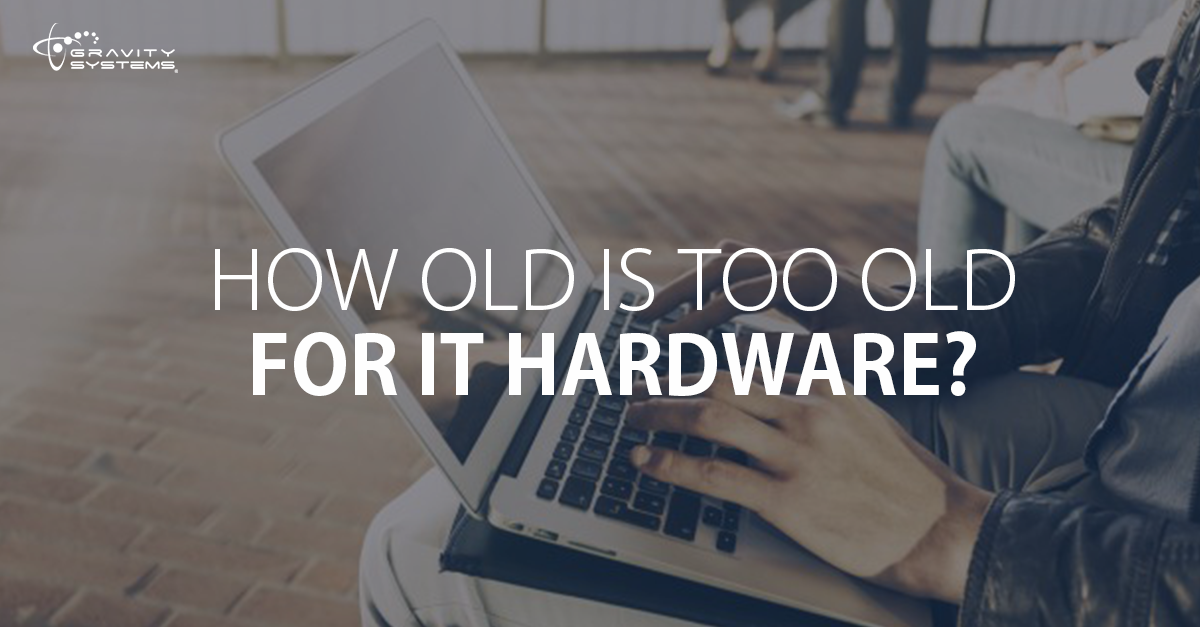When to update your IT hardware can be a tricky question. Do you really need to throw out that trusted old friend already? When is it the right time to make that switch? Here are some thoughts on the matter from your Austin business IT services gurus at Gravity Systems.
Theoretically, a computing device can perform its basic tasks for many years without actually dying on you. But there are some critical milestones you can watch out for – signs that the computer in question clearly needs to be replaced. These include:
When you can no longer make it secure. Once the current generation of operating systems stops supporting updates and patches of whatever your machine is capable of running, you have no way of keeping that machine safe against viruses and other hacks. At that point, it has to go – or at the very least, it needs to be taken offline and “quarantined” from the rest of your network.
When you can longer achieve reasonable speeds. Software has ballooned, gobbling up more and more memory and processing power compared to the programs of days gone by. Your computer might handle ancient apps quite nimbly while having a terrible struggle running more moderne programs – if it can run them at all. Time to say goodbye.

When mechanical failure is imminent. If the hard drive in your old computer is starting to make odd noises, there's a very good chance that it's about to fail, locking you out of its data in the process. Elderly fans can break, causing serious overheating. Surge protectors eventually lose their protective powers (so watch those indicator lights).
When in doubt, throw it out – and when do you, contact Gravity Systems so we can recommend the right replacement hardware for years of continued productivity!
Related Post: Encryption 101: Keeping Your Valuable Data Secure

_NO_BCS_bigger_weird_green_clear.png?width=100&name=for-website_large(save-at-500-tall)_NO_BCS_bigger_weird_green_clear.png)


